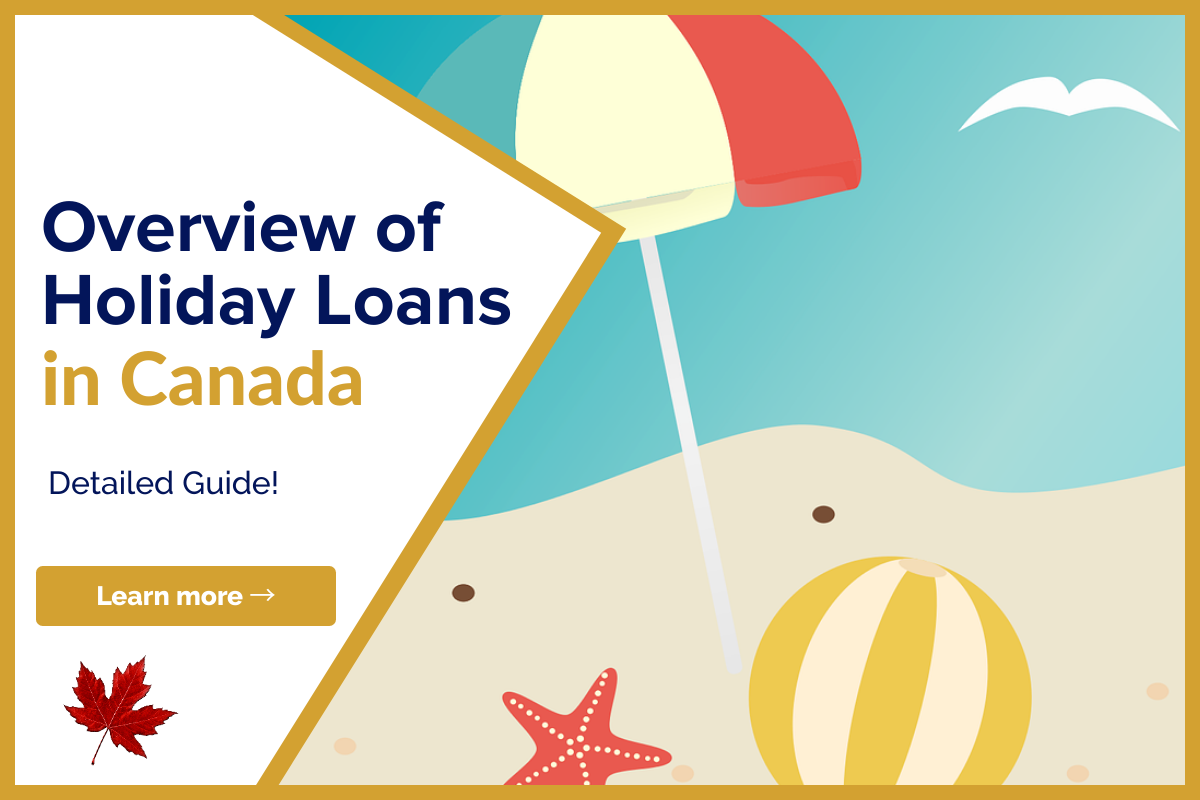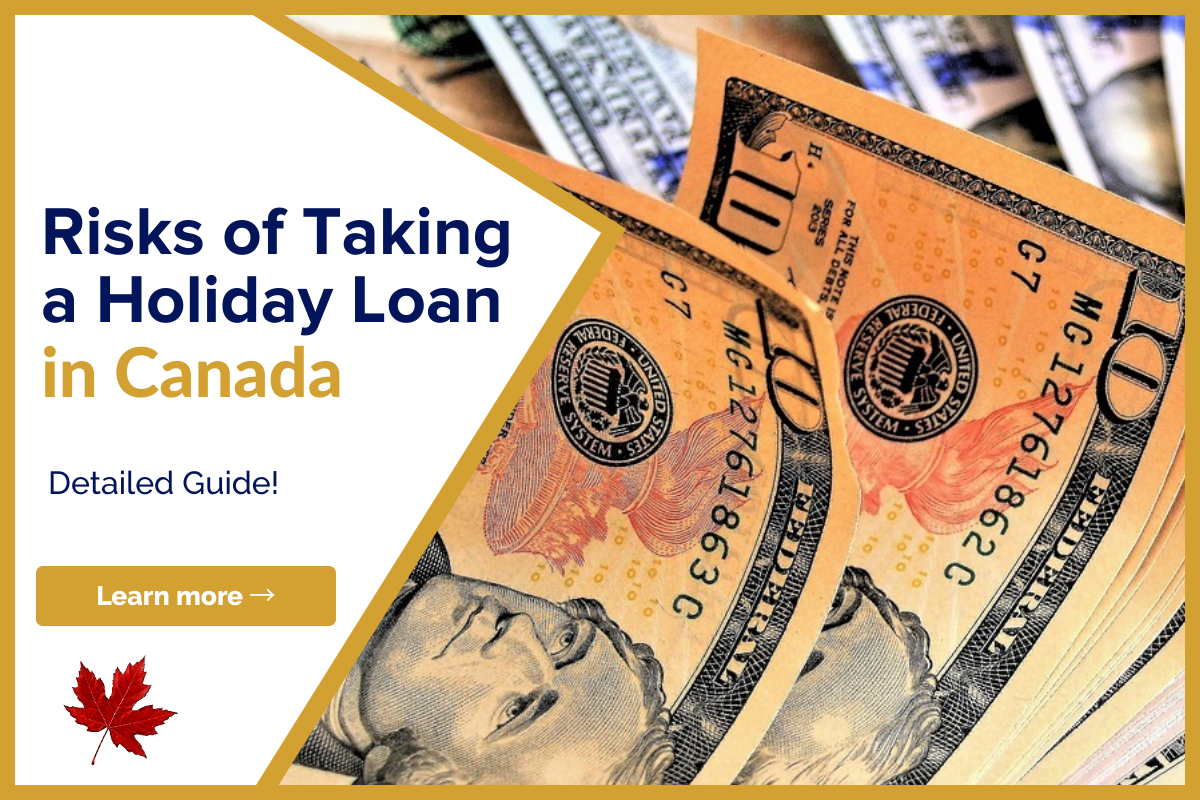Now you can listen to our blog post, "What is a good credit score for…

Overview of Holiday Loans in Canada
Now you can listen to our blog post, “Overview of Holiday Loans in Canada” while on the go.
Holidays are a time for relaxation, rejuvenation, and spending quality time with loved ones. However, for many people in Canada, the cost of going on holiday can be a significant financial burden. From airfare and accommodations to food and activities, the expenses can quickly add up, leaving many Canadians unable to afford a much-needed break.
This is where holiday loans come in – a financial solution that allows Canadians to borrow money to cover their holiday expenses and pay it back over time.
What are Holiday Loans?
Holiday loans are a type of personal loan that is specifically designed to help Canadians cover the costs of their vacations. These loans can be used to cover a wide range of holiday expenses, including flights, hotels, car rentals, food, activities, and more. Unlike other types of personal loans, holiday loans typically have lower interest rates and more flexible repayment terms.
Eligibility Criteria for Holiday Loans in Canada
The eligibility criteria for holiday loans in Canada can vary depending on the lender. However, there are a few general requirements that most lenders will look for, including:
- Good credit score: Most lenders will require borrowers to have a good credit score to be eligible for a holiday loan. This is because a good credit score indicates that the borrower is financially responsible and is more likely to repay the loan on time.
- Proof of income: Lenders will also require borrowers to provide proof of income to ensure that they have the means to repay the loan. This can include pay stubs, tax returns, or bank statements.
- Canadian residency: Borrowers must be Canadian residents to be eligible for a holiday loan.
- Age: Borrowers must be over 18 years old to be eligible for a holiday loan.
Types of Holiday Loans Available in Canada
There are several types of holiday loans available in Canada, including:
- Unsecured personal loans: Unsecured personal loans are the most common type of holiday loan in Canada. These loans do not require any collateral and typically have lower interest rates than other types of loans. However, borrowers with poor credit scores may have difficulty getting approved for an unsecured personal loan.
- Secured personal loans: Secured personal loans require borrowers to put up collateral, such as a car or house, to secure the loan. These loans typically have lower interest rates than unsecured personal loans but come with the risk of losing the collateral if the borrower is unable to repay the loan.
- Credit card loans: Some credit card companies offer holiday loans in the form of cash advances. These loans can be convenient, but they typically come with high-interest rates and fees.
Interest Rates and Fees for Holiday Loans in Canada
The interest rates and fees for holiday loans in Canada can vary depending on the lender, loan amount, and repayment term. In general, unsecured personal loans have lower interest rates than secured personal loans and credit card loans. The interest rates for holiday loans typically range from 5% to 25%, depending on the borrower’s credit score and the lender’s policies.
In addition to interest rates, borrowers should also be aware of any fees associated with the loan, such as application fees, origination fees, and prepayment penalties. These fees can add up quickly and significantly increase the overall cost of the loan.
Comparison of Different Lenders Offering Holiday Loans in Canada
When considering a holiday loan in Canada, it’s important to compare different lenders to find the best deal. Some popular lenders offering holiday loans in Canada include:
- Banks: Many banks offer holiday loans to their customers. These loans typically have lower interest rates than other types of loans, but borrowers may need to have a good credit score to be approved.
- Credit unions: Credit unions are not-for-profit financial institutions that offer lower interest rates and fees than traditional banks. They also often offer more flexible repayment terms, making them a great option for borrowers with lower credit scores.
- Online lenders: Online lenders have become increasingly popular in recent years due to their convenience and accessibility. They offer quick and easy loan application processes and can often provide funds within 24 hours. However, borrowers should be aware that online lenders may charge higher interest rates and fees than traditional banks and credit unions.
Benefits and Drawbacks of Taking a Holiday Loan in Canada
There are several benefits to taking a holiday loan in Canada, including:
- Access to funds: Holiday loans allow Canadians to access the funds they need to cover their holiday expenses, even if they don’t have the money upfront.
- Lower interest rates: Holiday loans typically have lower interest rates than credit cards and other forms of financing, making them a more affordable option.
- Flexible repayment terms: Many lenders offer flexible repayment terms, allowing borrowers to repay the loan over a longer period of time.
However, there are also some drawbacks to taking a holiday loan in Canada, including:
- Added debt: Taking out a holiday loan means adding debt to your financial obligations. Borrowers should ensure they can afford to repay the loan before taking it out.
- High fees: Some lenders may charge high fees, such as application fees and origination fees, which can significantly increase the overall cost of the loan.
- Risk of default: If borrowers are unable to repay the loan, they risk damaging their credit score and facing collection actions from the lender.
Tips for Choosing the Right Holiday Loan in Canada
When considering a holiday loan in Canada, there are several factors to keep in mind to ensure you choose the right loan for your needs:
- Compare different lenders: Compare interest rates, fees, and repayment terms from different lenders to find the best deal.
- Consider your credit score: Check your credit score before applying for a loan and look for lenders that cater to borrowers with your credit score.
- Read the fine print: Read the loan agreement carefully to ensure you understand the terms and fees associated with the loan.
- Determine your budget: Before taking out a loan, determine how much you can afford to borrow and repay based on your budget.
How to Apply for a Holiday Loan in Canada
To apply for a holiday loan in Canada, follow these steps:
- Check your credit score: Check your credit score to determine which lenders you are eligible for.
- Research lenders: Research different lenders to find the best deal for your needs.
- Gather documentation: Gather documentation, such as pay stubs and bank statements, to prove your income and residency.
- Submit your application: Submit your application to the lender, either online or in person.
- Wait for approval: Wait for the lender to approve your loan application and provide you with the funds.
Need Some Extra Cash to Help Your Finances? Try Lionsgate!
Are you struggling with your financial needs and need some extra cash? Lionsgate can help. Just fill out the form below, letting us know all your money or mortgage requirements, and we will find the best lender for you. Amazing thing? The process is free, and you can quit it at any time.
We have a team of experts that analyze your requirements and pick the best lender for you with prudent advice.
Note: Please give your authentic information while completing the form below.
Please share this article on your social media profiles if you found it helpful. Also, visit our blog to read similar helpful articles on finance, real estate, and getting mortgages.




